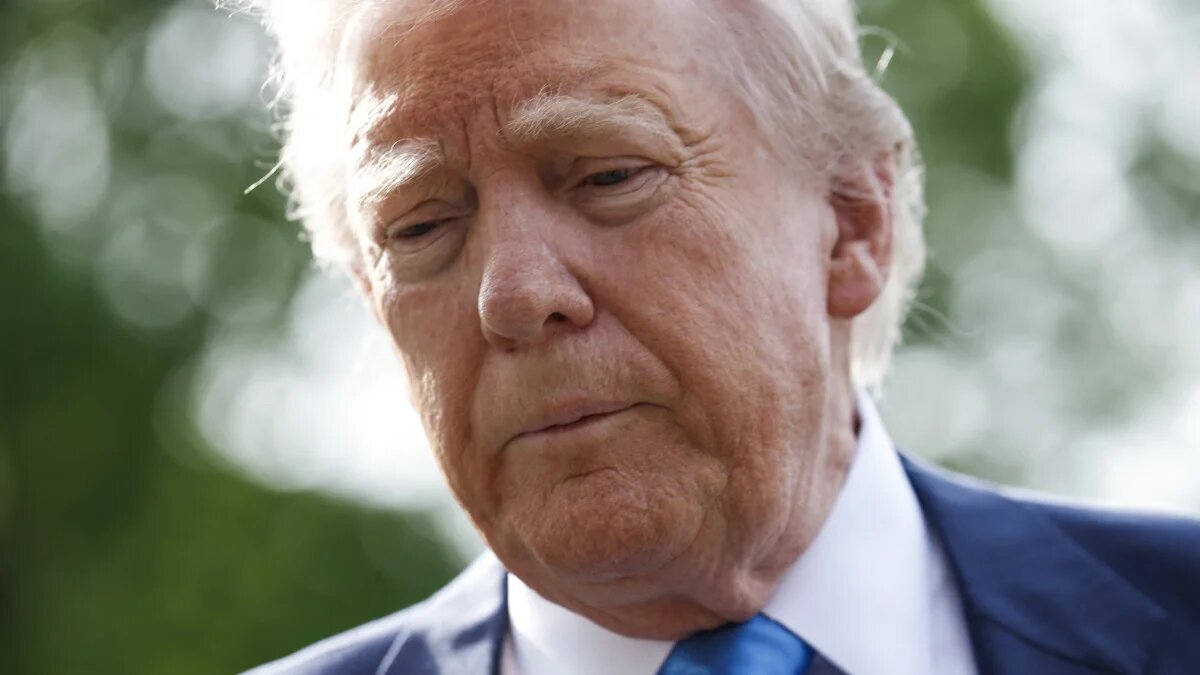Iran warns Trump’s sanctions ‘deepen distrust’ as two sides work for new potential deal

TEHRAN – The Iranian Foreign Ministry issued a sharp rebuke of the United States on Friday, condemning President Donald Trump’s renewed sanctions targeting buyers of Iranian oil as a repetition of “failed tactics” that undermine diplomatic efforts to resolve tensions over Tehran’s nuclear program.
The statement followed Trump’s Thursday ultimatum threatening secondary sanctions against nations purchasing Iranian energy products, triggering a global oil price rebound.
In a Truth Social post on Thursday, Trump declared: "ALERT: All purchases of Iranian Oil, or Petrochemical products, must stop, NOW! Any Country or person who buys ANY AMOUNT of OIL or PETROCHEMICALS from Iran will be subject to, immediately, Secondary Sanctions. They will not be allowed to do business with the United States of America in any way, shape, or form."
The announcement triggered a $3/barrel price surge as traders anticipated tighter supply, despite OPEC+’s current production glut.
Analysts note the threat targets China, Iran’s largest oil client, which the U.S. State Department admits imports “by far” the majority of Iranian crude.
Trump's sanction escalation comes amid the postponement of the fourth round of Oman-mediated indirect talks on Tehran's nuclear program, with Iranian Foreign Minister Abbas Araghchi citing "logistical and technical reasons" for the interruption.
Many view this as a continuation of the U.S.'s revived "maximum pressure" campaign, reinstituted in February and aimed at crippling Iran's economy by cutting off its oil revenue—even as negotiations persist, sending mixed signals that undermine diplomatic efforts.
The Iranian Foreign Ministry’s response criticized Trump’s move as “unlawful” and contradictory to ongoing indirect negotiations between Tehran and Washington.
It noted that Iran had engaged in three rounds of talks with “goodwill” after Trump sent a letter to the Leader of the Islamic Revolution, Ayatollah Seyyed Ali Khamenei, expressing openness to diplomacy.
“While reiterating its commitment to diplomacy, the Islamic Republic of Iran unequivocally rejects coercive and pressure-based approaches, which contravene the UN Charter,” the statement read, noting that the U.S. is undermining trust through “economic pressures on [Tehran’s] trade partners.”
It emphasized that Washington’s simultaneous pursuit of sanctions and diplomacy reflects a “justified skepticism” among Iranians about U.S. intentions.
“Repeating failed tactics will only result in the same costly failures of the past,” the Foreign Ministry warned, alluding to the collapse of Trump’s earlier maximum pressure campaign, which failed to curb Iran’s regional influence or nuclear advancements.
“These unlawful measures will not alter Iran’s logical, legitimate, and internationally grounded positions,” it concluded.
Defying sanctions with record exports
Since the U.S. withdrew from the Joint Comprehensive Plan of Action (JCPOA) in 2018, Iran has faced escalating sanctions targeting its oil sector, a policy intensified under the Trump administration’s “maximum pressure” campaign.
Despite efforts to curb Iranian crude exports—aimed at driving shipments to “zero”—Tehran has demonstrated remarkable resilience, nullifying the sanctions' intended effect.
While the 2020 exports reportedly averaged 1 million barrels per day (bpd) amid heightened sanctions, recent reports reveal a dramatic surge: Iranian crude exports exceeded 1.5 million bpd in 2024, marking a five-year high.
Iranian Oil Minister Mohsen Paknejad, himself under U.S. sanctions, dismissed the renewed pressure: “The desire to reduce Iran’s oil exports to zero is a wish they will never achieve. The maximum pressure policy is a failed policy.”
Government spokesperson Fatemeh Mohajerani echoed this defiance, stating: “Oil exports cannot be halted, and we will not back down from Iran’s share in the global oil market.”
Analysts argue that Trump’s latest directive faces structural challenges and that enforcement mechanisms remain unclear.
China has emerged as Iran’s primary oil buyer, with sales to Beijing alone reportedly reaching $6.6 billion in 2020—a figure that highlights both Iran’s adaptive economic strategies and its resilience amid sustained pressure.
This dynamic also reflects the timing of Trump’s recent sanctions escalation and the U.S. strategy of employing secondary sanctions, which unfolded against the backdrop of escalating U.S.-China trade tensions and tariffs.
Principled resolve over chaotic whiplash
Even after the fourth round of indirect nuclear talks between the two countries was postponed, Foreign Minister Araghchi said there is no change in Tehran’s "determination to secure a negotiated solution" and that Iran is "more determined than ever to achieve a just and balanced deal"—a stance that sharply contrasts with the United States' contradictory approach.
Many analysts have highlighted Trump’s erratic policy shifts and contradictions, especially on trade and sanctions.
Even Richard Nephew, a former Obama-era architect of Iran sanctions, openly doubted the administration’s coherence, posing sharp questions on X: “Are they actually going to block all U.S. business with China? Because we’ve already seen what the tariffs did to the market and will shortly be doing to U.S. shelves. Do his words or those of his Administration matter? Does anyone inside the USG [U.S. government] actually know the answer to these questions?”
Furthermore, the Iranian Foreign Ministry's assertion that Washington's dual strategy of sanctions and diplomacy is fueling well-founded Iranian skepticism is especially significant.
Following Trump’s recent announcement of new sanctions against Iran and its trading partners, analysts and social media users highlighted Ayatollah Khamenei’s longstanding warnings about the challenges of negotiating with the U.S., as well as his predictions that such talks would inevitably lead to broken promises and coercion.
The Leader of the Islamic Revolution recently asserted: “The nation’s affairs should not be dependent on talks,” emphasizing ongoing national projects in infrastructure, energy, and defense.
He also pointed out that Iran is neither overly optimistic nor overly pessimistic about the Oman-mediated talks.
Before Trump’s diplomatic outreach and Iran’s measured reply, Iran’s Leader had dismissed negotiations with “bully states” that seek to “dominate and impose their expectations.”
Ayatollah Khamenei had predicted that engagement with the current U.S. administration would not alleviate sanctions: “If negotiation aims to get rid of the sanctions, engaging with this U.S. administration won’t achieve that. Instead, it will complicate the sanctions issue further and increase pressure on us. Negotiating with this government will only heighten that pressure.”
Leave a Comment